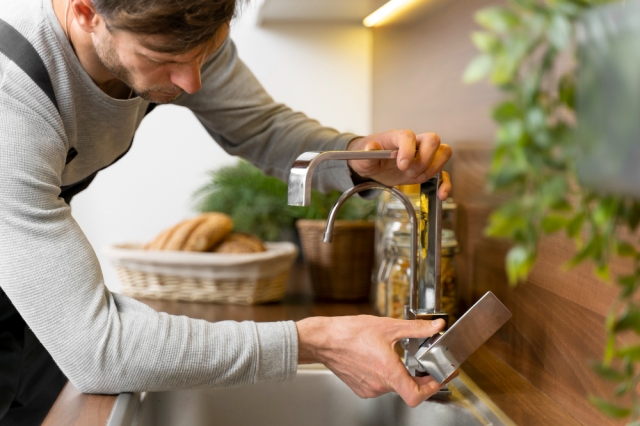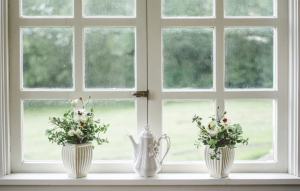Maintaining a functional and healthy home plumbing system is akin to hitting a home run for your health and comfort. Picture this; you wake up refreshed and head to the bathroom. As you turn on the faucet, clean water flows with perfect pressure for your morning routine. That's a winning day! A well-maintained plumbing system makes this possible. But how can you achieve this? Let's dive in and discover the truth about leaving no leak behind!
Before we embark on our plumbing maintenance journey, remember that different homes may require unique plumbing solutions. Shower some love on your home by understanding its specific needs. Watch Dan's Plumbing videos as an excellent start to enhancing your DIY expertise.
Importance of Regular Plumbing Maintenance
There's more to plumbing maintenance than simply making life comfortable. In addition to ensuring uninterrupted access to water, well-maintained plumbing systems promote the overall health of the inhabitants by averting waterborne diseases caused by leakages or contaminated water.
A robust plumbing system also keeps the ambiance of your home fresh and odor-free. Fresh ambiance could be the difference between coming back to a refreshing home or dealing with unwelcome smells after a long, tiring day.
The Environmental Protection Agency recommends replacing any lead-based pipes due to potential health risks, clearly underlining the significance of regular pipe checks and replacements in maintaining a healthy environment within homes.
Besides, routine maintenance checks assist in identifying any deep-rooted problems in your plumbing systems before they become catastrophically costly repairs. Early detection saves time, stress, and money!
Preventing Drain Clogs
The first rule in keeping drains clog-free is understanding what should and shouldn't go down the drain. Food scraps, grease, paper towels - they can turn your drains into a nightmare!
Avoid turning the kitchen sink into a garbage disposal. If you must dispose of oil or grease, simply put it in a sealable container and throw it in the trash. For bathroom drains, use drain covers to prevent hair and soap scraps from clogging the pipes.
Another brilliant clog prevention strategy is using natural remedies like baking soda and vinegar solution once a month. This works wonders in keeping your drains clean and smooth.
Plumbing maintenance extends to septic tanks as well. The National Association of Home Builders recommends regular pumping of septic tanks after every three to five years.
Fixing Leaky Faucets
Leaky faucets are more than just annoying. They symbolize water waste, inflated bills, and potential damage to your home structure. Unfortunately, we often overlook these drips until we face hefty water bills.
Start by identifying the type of faucet in your home because different types have unique repair methods. Conventional faucets like compression types wear out with time and may need part replacement.
If you aren't handy with tools or the leak seems too tricky to fix, hire professionals. The American Society of Plumbing Engineers maintains a comprehensive directory of qualified plumbers that could be a lifeline when DIY repairs get out of hand.
Besides fixing leaks immediately, installing water-efficient fixtures also helps conserve a significant amount of water daily, lightening the load on your utility bills.
Maintaining Healthy Pipes
Pipes are an integral part of your plumbing system, necessitating utmost care and maintenance.
In colder climes, insulate your pipes as recommended by the U.S. Department of Energy to prevent freezing. A ruptured pipe due to freezing can lead to costly repairs and a possibly damped holiday spirit.
Knowing the type and age of your pipes is crucial as different materials have unique lifespans. For instance, brass and galvanized steel last between 80-100 years while copper lasts about 70-80 years. Regular inspection ensures they remain in great shape for as long as possible.
Rusting and corrosion are the most prevalent pipe complications. Watch out for discolored water or reduced water pressure; they could be signs of corroded pipes. Immediately rectify any such issues to maintain healthy pipes.
Conserving Water at Home
Water conservation is not only great for the environment but also light on your wallet.
Begin with small steps like avoiding running water while brushing teeth or installing water-efficient appliances. According to the Environmental Protection Agency (EPA), high-efficiency appliances save around 30,000 gallons per family every year.
Teach kids about the importance of water conservation and encourage responsible use. Setting the groundwork for responsible water use ensures both the present and future generations live sustainably.
You may also consider harvesting rainwater. Harvested water is excellent for gardening and topping up swimming pools, thus significantly reducing municipal water usage.
Lastly, regular maintenance efforts result in conserving water better than you might imagine. Don't treat those drip sounds lightly; they're cries for your immediate attention!
Checking for Hidden Leaks
Finding hidden leaks might appear like an undercover mission, but it's crucial for your home's health. You are not only saving precious water but also protecting your home from potential water damage. If unnoticed, these leaks can lead to mold growth and structural damage.
The silent culprits may be found in places like your toilet, under sinks, and even outside hoses. Certain indicators give away their presence: damp spots on floors or walls, exceptionally green patches on lawns, or sudden increases in water bills.
The Environmental Protection Agency (EPA) suggests a two-hour period of no water use to check for hidden leaks. If your water meter reads differently before and after this period, you likely have a leak. Regularly performing this easy test helps preserve the health of your home and wallet.
In case the leak's location remains elusive, professional plumbers would be essential. They utilize specialized equipment that uncovers the sneakiest of leaks ensuring no damage goes unnoticed.
Regular Water Heater Inspections
Your water heater requires regular attention to ensure optimum performance. An unrecognized heater issue could land a blow to the comfort of your showers and efficiency of household chores. Let's explore how to keep this vital appliance running smoothly.
Start by checking the temperature setting on your heater's thermostat. The U.S. Department of Energy recommends a setting of 120 degrees Fahrenheit for both safety and energy efficiency. If you notice unusual variations, it's time for some professional help.
Sediment buildup inside the tank significantly reduces heating efficiency. The International Association of Certified Home Inspectors (InterNACHI) suggests draining a quart of water from the tank every three months as a preventive measure.
Frequent inspection of the heater's valves and pipes for leaks safeguards against any potential water damage. Also, a professional annual inspection can help diagnose issues like corrosion or improper venting, thus preserving your heater's longevity.
Managing Toilet Maintenance
Toilets probably account for most of your indoor water use. Consequently, unattended toilet issues may result in significant water loss, alongside inconvenient disruptions to your daily routine.
Regularly inspect for random running water sounds. Constant water flow signals leaky fill valves or flapper valves. Repair or replacement usually resolves this problem, ensuring seamless toilet operations.
The National Library of Medicine emphasizes cleaning toilets more frequently to prevent bacterial buildup. Regular cleaning also helps you identify any irregularities in flush pressure or signs of wear and tear.
If aggressive plunging becomes an incessant routine, don't ignore it. Frequent clogging could be a symptom of underlying issues like tree-root intrusion or even outdated toilet design. Professional plumber intervention would deliver practical solutions.
Understanding Septic System Health
A healthy septic system underpins overall home plumbing excellence. However, these unseen heroes often get overlooked until something amiss manifests. Here's how you can ensure they keep serving unnoticed - just how we like them!
Monitor your water usage; overconsumption can disrupt the delicate balance within septic systems. Using high-efficiency appliances preserves this balance while saving many gallons of water annually.
Avoid disposal of non-biodegradable items down the drain since they clog the septic system. The Centers for Disease Control and Prevention (CDC) recommends cleaning septic tanks every three to five years depending on usage.
Certain signs like waning drain field vegetation, sewage backup, or unpleasant odors indicate a troubled septic system. Act swiftly to rectify these issues, ensuring smooth household operations.
Safely Using Chemical Drain Cleaners
Chemical drain cleaners are a convenient solution for many clogging issues. However, they need careful handling due to their potent nature. So how do you use them without compromising your safety or plumbing health?
Always follow manufacturer instructions strictly. Use protective clothing and ventilation as chemicals can be hazardous upon contact or inhalation. Never mix different drain cleaners since they might produce toxic gasses.
The Pipeline and Hazardous Materials Safety Administration warns against using chemical cleaners on complete blockages. The trapped chemical solution can cause pipe damage, and in worst cases, personal injury.
Consider eco-friendly alternatives like enzymatic drain cleaners, which are safer yet effective options. Regular maintenance and adoption of clog-prevention habits minimize the necessity for chemical cleaners, promoting healthy living within your household.
Conclusion
Adequate plumbing maintenance not only ensures uninterrupted water access but also contributes significantly to your home's health and efficiency. Converging the discussed tips yields a robust plumbing system that stands the tests of time and use. Cultivate routine checks, embrace professional help when needed, and prioritize water conservation. Treat your home's plumbing with care and it'll reciprocate with delightful service!






